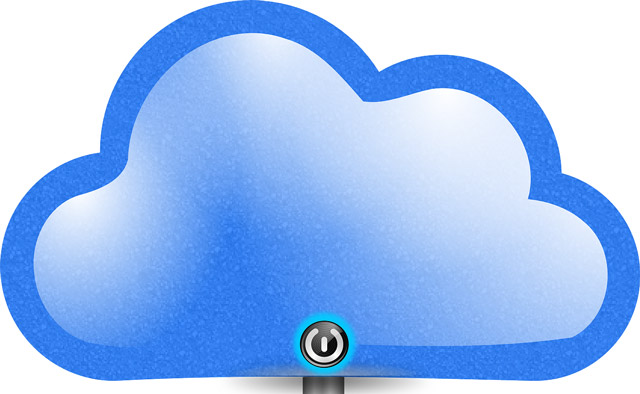 Tell people there’s been an accident or a train wreck and they rush to the scene to survey the damage. They will watch for hours and say under their breath: “Thank goodness that’s not me.”
Tell people there’s been an accident or a train wreck and they rush to the scene to survey the damage. They will watch for hours and say under their breath: “Thank goodness that’s not me.”
The recent Sony hack has provoked a similar reaction. It’s one of the first major battles in a looming cyberwar.
Yet it appears that Sony’s travails have done nothing to slow companies’ rush into putting everything in the cloud and online.
If nothing else good comes from the Sony fiasco, it should reinforce the global recognition among businesses that there is no such thing as security and privacy on the Internet.
I’m not concerned about the gory details of the Sony hack. But it is messy proof that anyone can be hacked and that business needs more than a little common sense and healthy caution when working in the virtual world.
Cloud computing is almost irresistible, which is why cloud services are now estimated to hold more than a quarter of the world’s business data, including personal medical records and financial documents.
According to the International Data Corp (IDC), public cloud spending will reach US$127bn by 2018, growing six times faster than the conventional IT sector over the period.
Gigaom Research reports that 53% of large enterprises are either already leveraging public cloud resources for enterprise big data or are planning to.
Only 13% of the Gigaom respondents said they would only use private data centres. Why waste the money?
The numbers for cloud services and big data are staggering.
Proponents of the cloud love talking about all of the super-fantastic, productivity-leading savings: $300bn/ year for the US healthcare industry; $250bn for the European public sector; 60% potential increase in retailers’ operating margins; $600bn in economic surplus for services enabled by personal-location data.
There are savings under every rock, behind every tree.
Half of the world’s 7,3bn people will be online looking for places to store their stuff — more than 8,6 zettabytes worth. That’s equal to streaming all the movies (about 500 000) and TV shows (3m) ever made over ultra-high-definition channels 250 000 times.
By 2020, the volume will almost double.
To meet the demand, IDC senior vice-president Frank Gens suggests the number of new cloud-based solutions will increase 10-fold.
Almost all of those offering solutions will also be running hell-bent to be the best and cheapest one around so they can get more of your stuff and only lose a little on each transaction.
Companies that can best afford to play the cheaper card are Amazon, Google, Apple, Microsoft, Facebook and Alibaba.
They’re not only the biggest clouds around; they have the most personal and company data which they can recycle, reprocess, sell and resell.
Of course, there are a couple of problems with this rosy picture. Chief among them is that certain people can’t resist tapping into all of that data.
A BT Group study covering 11 countries found that more than three-quarters of IT decision makers are understandably “extremely anxious” about security when using cloud-based services.
Yet 70% of enterprise executives are adopting cloud storage and it’s doubtful if even the Sony embarrassment will deter them.
Harris Interactive found that 39% of US Internet users use the cloud, saying it “improved the lives of Americans who work”. The firm also said the cloud made it easier to share files, users didn’t have to worry about backing up data, and it made their lives more “fun”.

It was so much fun that Juniper Research estimates that 3,6bn people will be using cloud services by 2018.
But there’s one little problem.
Penetrating corporate online systems and cloud storage can become the way companies are crippled or even put out of business.
Knowing their business survival depended on privacy and secrecy, after the hack Sony dusted off its ageing fax machines.
Guardians of Peace, which has taken credit for the Sony breach, has already cost the company an estimated $100m in lost film revenues.
The problem is the Internet was never built for security; it was built for information exchange.
Now companies have found it’s a cheap, easy way to reach their customers and move huge volumes of data around.
However, the Centre for Strategic and International Studies reported global cybercrime will rack up $575bn this year. And the dollar value of the losses doesn’t even begin to touch the loss of corporate brand equity.
The Sony hack wasn’t about setting a few movies free or building buzz around an otherwise really stupid film. Rather, it was about tearing at the very fabric of the company.
Online privacy and security must be every employee’s job, because today’s organisations rely so heavily on their data systems and simply adding more guards and more security personnel won’t be enough.
Try as the US government has to find a single entity at fault for the Sony breach, it’s difficult to prove when Internet protocol addresses around the globe were used.
But the attackers have shown they can be cause immense damage without even firing a shot.
For some unlucky company, it could even prove fatal. Of course, it won’t make for a particularly exciting movie.
- Andy Marken is head of Marken Communications, a US consultancy




